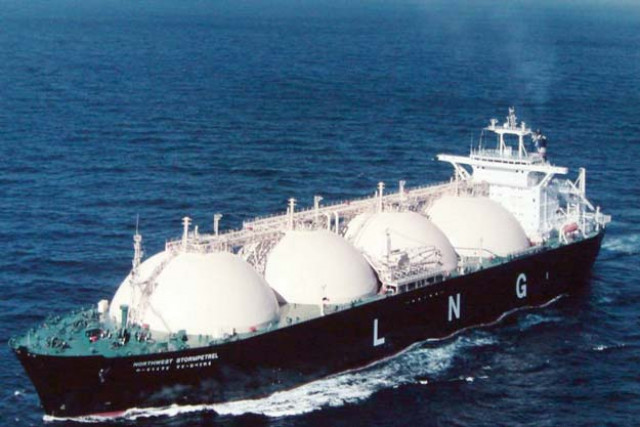New energy policy: Sindh refuses nod till oil, gas issues resolved
Finance minister directed not to attend meeting convened by petroleum ministry.

The Sindh government is also of the view, that the import of Liquefied Natural Gas (LNG) would seriously affect the energy security of the province. PHOTO: AFP
The decision was taken in a meeting, chaired by Sindh Chief Minister Syed Qaim Ali Shah.
Provincial Minister for Finance and Energy Syed Murad Ali Shah also announced in the Sindh Assembly on Monday that they had refused to endorse the federal government’s new energy policy if demands about oil and gas consumption rights are not addressed.
Shah informed the chief minister in the meeting that the Ministry of Petroleum had convened a meeting on April 7 in Islamabad to discuss the issues raised by the Sindh government during the IPC meeting. “The meeting instead should have been convened by the Inter Provincial Coordination Committee (IPCC) Division which is competent to discuss such decisions,” the minister said.
The Sindh government had raised issues concerning the provision of natural gas to Engro Fertilizers at concessionary rates. According to them, it had caused a loss of Rs4-5 billion annually to the province in terms of gas development surcharge collection.
The government also wanted a revision of policy guidelines for adjustment of gas tariff for Sui Southern Gas Company Limited (SSGCL)/Sui Northern Gas Pipelines Limited (SNGPL). The government could lose Rs5-8 billion annually on account of Gas Development Surcharge (GDS) under the current policy.
Removal of the Gas Price Agreement (GPA) of Mari Petroleum Company Limited is also on the agenda. Since Mari Gas is a major contributor in gas development surcharge, it is feared that the government of Sindh may lose Rs8-10 billion annually.
The government has also raised concerns against the promulgation of Gas Infrastructure Development Cess Ordinance. The ordinance is against the constitution, and the Supreme Court has already declared GIDC Act 2011 as illegal and unconstitutional.
The Sindh government is also of the view, that the import of Liquefied Natural Gas (LNG) would seriously affect the energy security of the province.
Under Article 158 of the Constitution, the province producing oil and gas is to be given precedence over other parts of the country for utilisation of gas, whereas swap arrangement for natural gas from Sawan and Zamzama gas fields would be diverted to SNGPL network in Punjab.
The chief minister directed the Minister for Finance & Energy not to attend the meeting convened by Ministry of Petroleum and to inform IPCC division to organise the meeting.
Published in The Express Tribune, April 7th, 2015.
Like Business on Facebook, follow @TribuneBiz on Twitter to stay informed and join in the conversation.



















COMMENTS
Comments are moderated and generally will be posted if they are on-topic and not abusive.
For more information, please see our Comments FAQ